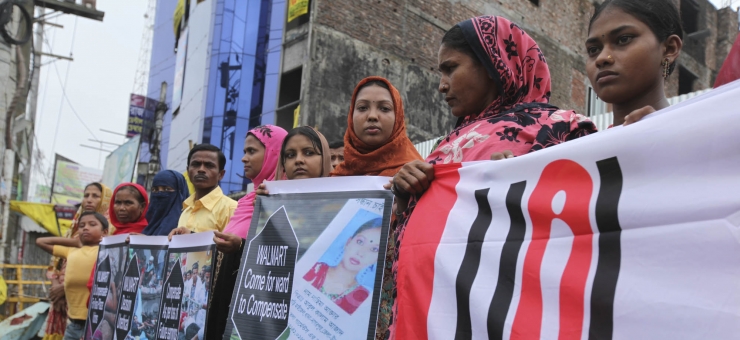Bangladesh Accord marks third anniversary

Three years ago on 15 May 2013, global garment brands and retailers and 2 global unions and their national RMG affiliates signed an unprecedented agreement to make garment factories safe in Bangladesh. With more than 210 company signatories and approximately 1600 factories covered by the agreement, the Accord is embarked on a large scale effort to complete remediation of major safety risks at all inspected factories and to roll-out safety committee and safety training at an expanded number of covered factories.
UNI Global Union Head of Commerce, Alke Boessiger said, “The bottom line is that the Bangladesh Accord has saved lives and made many Bangladeshi garment factories safer for workers. Our commitment is total and we will not relent until the job is complete.”
Since November 2013, 1550 factories covered under the Accord have been inspected for fire, electrical and structural safety. An additional 75 newly listed factories are included in the current, ongoing round of initial inspections. Approximately 60% of the safety hazards identified through the initial inspections have now been reported or verified as repaired. This is a significant accomplishment and factories are becoming much safer but remediation now needs to be completed without further delay. Accord Chief Safety Inspector, Brad Loewen, who is leading the effort to make this happen states, “the Accord’s intensive and sustained program of supporting remediation and escalating cases where progress is too slow is working. The Accord is committing an enormous amount of time, staff, and resource to making sure remediation is completed and completed in a more timely manner”.
A functioning and capable labour-management safety committee at the factory level is an important piece to monitoring and maintaining safety compliance. After a successful pilot safety committee training program at approximately 65 Accord listed supplier factories with a registered trade union, the Accord will now implement the safety committee element of the Accord on a larger scale at covered factories. “The pilot work done thus far makes us optimistic that safety committees will be developed which will be capable of and permitted to perform their safety maintenance, monitoring, and educational functions” says Rob Wayss, Accord Executive Director. “The training materials, methods, and delivery systems have been well-received, are practical and relevant, and can be implemented on a large scale basis” he adds.
The Accord continues our intensive work with the national social partners and support for the National Plan of Action. We shall continue to share our experience and expertise so that that the national partners can better meet their respective obligations in respecting and enforcing safety compliance in the RMG sector.
For more information:
Accord Office Dhaka:
+88 02 985 2093
Mahafuza Akter, Communications Officer- 0176 669 5926
For press outside Bangladesh:
Joris Oldenziel, Head of Public Affairs and Stakeholder Engagement
Office Amsterdam: +31 (0) 20 520 7431
Mobile: +31 614 954 430
ABOUT THE ACCORD
The Accord is an independent, legally binding agreement between garment brands and trade unions designed to work towards a safe and healthy Bangladeshi Ready-Made Garment Industry. Our purpose is to enable a working environment in which no worker needs to fear fires, building collapses, or other accidents that could be prevented with reasonable health and safety measures.
Features of the agreement
#1 – a five year legally binding agreement between brands and trade unions to enable a safe working environment in the Bangladeshi garment industry.
#2 – an independent inspections program enabled by brands, in which workers and trade unions are involved.
#3 – a reporting system of transparent publication of all inspection reports and Corrective Action Plans.
#4 – a commitment by the industry to financially supporting remediation where necessary.
#5 – an extensive training and worker empowerment program.
#6—health and safety committees in all Accord factories.

